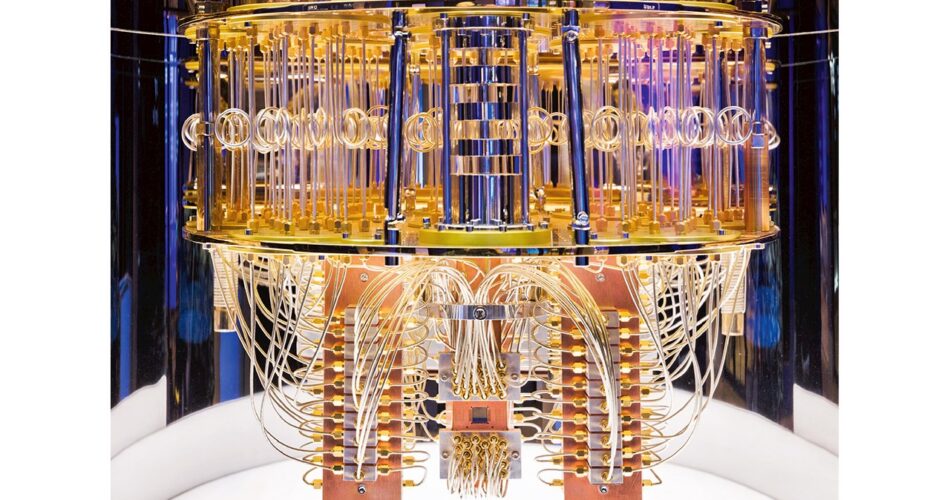Two powerful technologies
Today’s A.I. is worse than you think. Apparently, intelligent systems that make automatic decisions and algorithms that handle a large quantity of data are used by governments and companies to surveil people, monitor social media, create deepfakes, and unleash killer drones while companies like Google and Meta don’t say a word about the danger of A.I.
But even a more powerful upcoming technology, known as quantum computing, has the potential to cause trouble, especially when combined with A.I.
Quantum computing, though still in its infancy, works fundamentally differently from today’s semiconductor-based computers. These machines will be incredibly powerful and be able to complete tasks that would normally take ordinary computers millions of years to complete in a matter of seconds.
Information is represented by semiconductors as a sequence of 1s and 0s. On the other hand, quantum computers employ a qubit, a type of computing unit. A qubit instead, can store values of 1 and 0 simultaneously, this is defined as superposition. As a result, two qubits may simultaneously represent the parallel sequences 1-0, 1-1, 0-1, and 0-0. Therefore, there can be a significant gain in processing capability, which increases exponentially with each extra qubit.
When applied to everyday applications, quantum physics can radically change our lives. With their ability to handle such a large quantity of data, more than you can imagine, quantum computers could provide, for example, better research into space exploration, financial analysis, logistical planning, and medicine development. However, it could also be used for malevolent purposes, such as compromising passwords, bank information, and personal communications on all digital computers worldwide.
Modern encryption uses a huge number of combinations to encrypt data, making it nearly hard to decrypt with conventional digital technologies. However, quantum computers may one day be able to test combinations so quickly that they may practically instantly break encryptions using brute force by making use of quantum mechanical phenomena like superposition, entanglement, and uncertainty.
Due to the technology’s revolutionary possibilities and tremendous potential, quantum computing operations are probably already a part of the defense and other government research.
According to this article, despite the lack of media attention, some fundamental applications, such as quantum sensors to measure magnetic fields, have shown the potential of this technology. From the International Space Station, one of these sensors was used to precisely monitor the Earth’s magnetic field.
Another example was a Dutch experiment in which researchers tested the teleportation of quantum information. Although these tests haven’t yet demonstrated useful uses, they may lay the basis for a future quantum internet in which quantum data can be safely transmitted among a network of quantum computers at a faster rate than light.
But there’s another step, combining quantum computing with A.I. in order to handle a huge volume of data that today’s computers couldn’t. Quantum computers could do the job with less space and energy. A.I. will have access to so much information that a human brain will never be able to imagine. That’s why some raised the issue of a potential sentient A.I., even if it was just an illusion.
Therefore, it is imperative to avoid making the same mistakes that were made with artificial intelligence where regulatory failure resulted in algorithmic bias that amplifies human biases, for example. Autonomous decision-making done by machines poses risks since bugs in the computer code might produce unexpected, frequently negative results. The quantum community made an urgent appeal for action to address these issues in 2021.
However, there are also concerns about national defense. Security technology is what is referred to as a cryptanalytically relevant quantum computer, a machine capable of breaking most public-key cryptography used by digital systems globally, enabling, for example, blockchain cracking. Something that in the hands of a hostile regime is exceedingly dangerous.
According to experts, China seems to be ahead in a number of quantum technology fields, including quantum networks and quantum processors. China has produced two of the most powerful quantum computers in the world, and in 2017, researchers at the University of Science and Technology of China in Hefei created the first quantum communication network employing cutting-edge satellites.
Governments need to start thinking about rules, norms, and responsible applications immediately. They also need to study how other transformative technologies, including A.I., nanotechnology, biotechnology, semiconductors, and nuclear fission, were handled or not handled by various nations to avoid repeating the A.I. mistake.
On the other hand, technology itself must be prepared to safeguard people from such dangerous technology. A.I. and quantum computing are like big weapons able to change our reality. They are a big brain that could interfere in our lives without our realizing it. They can foresee our moves, change the information we access, make us believe something unreal, and manipulate our decisions with the risk that we become puppets manipulated by an artificial brain or by the ones who handle it.
